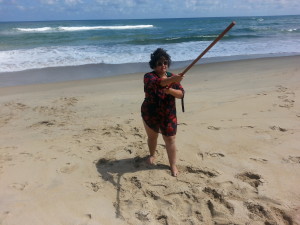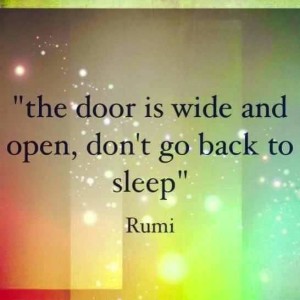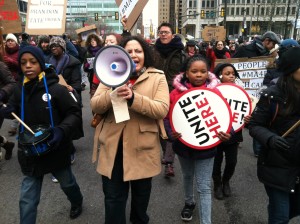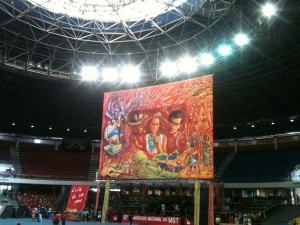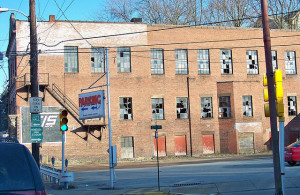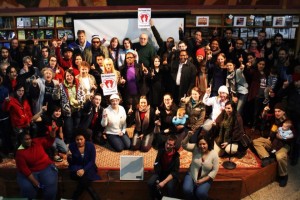Steven Covey, author of the Seven Habits of Highly Effective People talks about our “Emotional Bank Accounts”. Despite the fact that it’s weird to talk about banking in this context, I think the concept of making investments in our relationships – actions that demonstrate trust, understanding and support – is a good one. He takes the metaphor further to suggest that when we violate trust or make a mistake, it’s akin to making a “withdrawal” against the investments that we’ve already made. I have often thought of this metaphor when I think about building trust with movement colleagues.
The more that I work with this metaphor the more I become aware that this grounding is only useful when it is broadly understood and reciprocal. There is much that gets in the way of us treating each other with deep respect, including ego, competition, lack of self-awareness, and oppressive conditioning.
At times the lack of respect that I experience make the work almost unbearable. I also have said and done things that I’ve regretted, made lots of mistakes and treated people with less respect than they deserved. I am in no way saying that I do not exhibit problematic behaviors.
I am also working on improving my practice.
I think the thing that I’ve been most harmed by is that people that I’ve invested in heavily – that I’ve given jobs, provided opportunities, supported, mentored, helped, not over the course of months, but over the course of years, have been able to turn on me as a result of a real or perceived “withdrawal” that feels so asymmetrical – especially in light of our history of multiple, sustained investments of trust. That kind of betrayal really pains me. There has to be a way to understand, overcome and avoid it outside of simply not trusting anyone ever again, or being made to feel ashamed for being taken advantage of – like I’m the one at fault for “having it happen to me”. Also seems important to note here that every single person who has ever behaved this way toward me was a man.
Relatedly, I’ve recently been reflecting on the things that are getting increasingly difficult for me in the course of doing this work. There are a lot of narratives out there about how we are supposed to expect that movement work is a hard and never-ending slog through shit. However, I am very much interested in improving our practice and not having the work produce a lot of collateral damage. If the work that we are doing serves to re-traumatize ourselves and others, how exactly are we getting free? We are already situated within an economic, political and social system that prevents us from being our fullest selves. We have no choice but to transform it. However as we do that, the ends don’t actually justify the means when the means are bullshit. We all have to make sacrifices and compromises, and our hands aren’t clean. We can’t stand outside the system to do our work. However, as we make the road by walking, we have to clear the path through our actions, and act – create systems, structures and processes – in ways that liberate instead of oppressing, for ourselves and others.
As I’ve been doing these reflections, here are some places that feel like they are becoming untenable for me in terms of the emotional labor that I’m doing on top of the intellectual and physical labor of movement work. It’s not any one of these that’s untenable, it’s the fact that sometimes it feels like I am doing all of these things, all of the time. No single one of these is a deal-breaker, but taken together, and when performing these tasks of emotional labor actually crowds out my ability to be well myself, and do the things that I really love, like strategy, base building, and study, they become unbearable.
- Constantly mediating conflict between people for the good of the work
- Absorbing people’s emotional outbursts, when targeted mistakenly at me or others; being expected to de-escalate and mend the situation even when it is re-traumatizing
- Anticipating and troubleshooting problems and providing extra support proactively in order to avoid re-traumatizing other people – ie trying to solve problems before they happen
- Accepting people being impatient, judgmental, negative or demanding in ways that are very challenging to deal with because of where they are in their leadership development process
- Cleaning up after other people’s bad behavior, playing a reassuring or ameliorating role to calm people’s feelings because of someone’s unaware or intentional bad actions
- Being someone that people come to when they have problems, being someone that is expected to fix people’s problems and make them feel better, rather than them fixing their problem on their own, or offering to help fix my problems
- Constantly being expected to absorb negativity, people unawarely not balancing their critiques, complaints and problems with affirmation and appreciation
- Making issues personal instead of understanding them as part of the process, organizational, and co-created (ie acknowledging their own role)
- Being the object of the assumption that I am able to do a tremendous amount of work without strain, stress or pain
- My ideas being repeated as if they were the original ideas of others who then get credit and recognition for them
- Despite fighting for people, helping them and defending them, being treated as if I am not worthy of the same, being turned on quickly for the convenience and benefit of others
- Having a position of non-conflict and nonviolent communication used as an excuse to be an “easy target” or scapegoat as needed because I won’t make the kind of scene that others will
- Perceiving my work and my ability as a threat rather than an asset because of ego and behaving in ways that lack integrity as a result
- Working with people who are afraid of conflict, therefore if conflict arises, quickly exit the scenario rather than take a principled stand for the sake of no one “being mad at them”; can’t distinguish between reasonable or justified accountability and unprincipled attacks
- To not have the role of oppression acknowledged in situations, to have people around me not acknowledge power when being treated badly by someone that society imbues as more deserving of respect and dignity than I am. To have the oppressive component of the mistreatment ignored or minimized, to exhibit a complete unwillingness to assist the person doing the behavior to achieve greater awareness.
- Being a constant cheerleader, having to maintain hope and continue to be inspirational during moments when others are lost or feel hopeless. Having to maintain discipline around hope and a clarity of vision that carries other people through difficult times.
- People who use their privilege to step on you, using your emotional and intellectual labor for their own benefit and using it to maneuver themselves into positions of power or influence without giving credit or assistance to help better your situation.
- Constantly getting the unaware and oppressive feedback that I’m aggressive, threatening and intimidating simply as a reaction to my natural way of speaking and being.
- Not being allowed to express anger or frustration at the above treatment, expected to always appear to be okay with whatever is happening even when it is unacceptable, receiving reactions of anger and frustration for my reactions because they are seen as a distraction and an inconvenience when none was given for what caused them.
